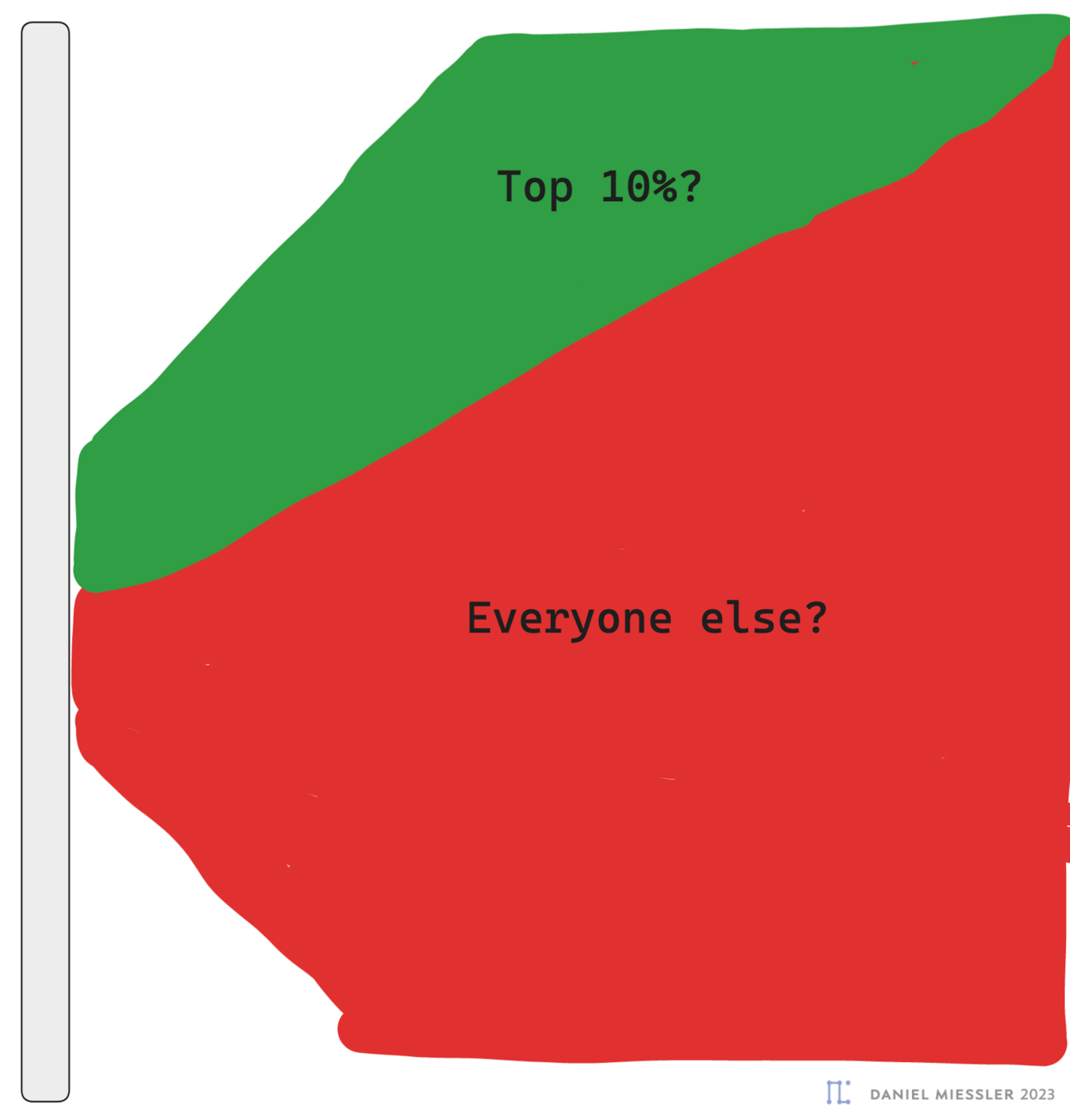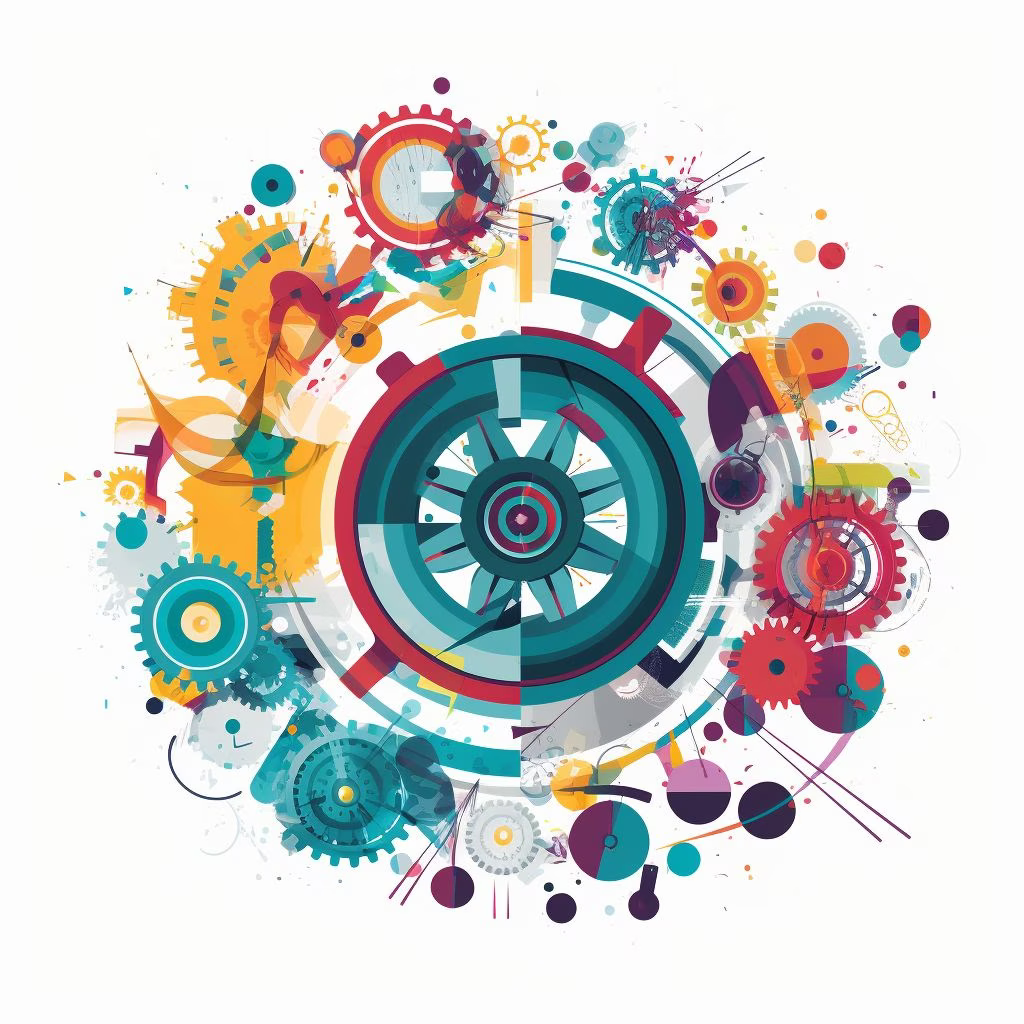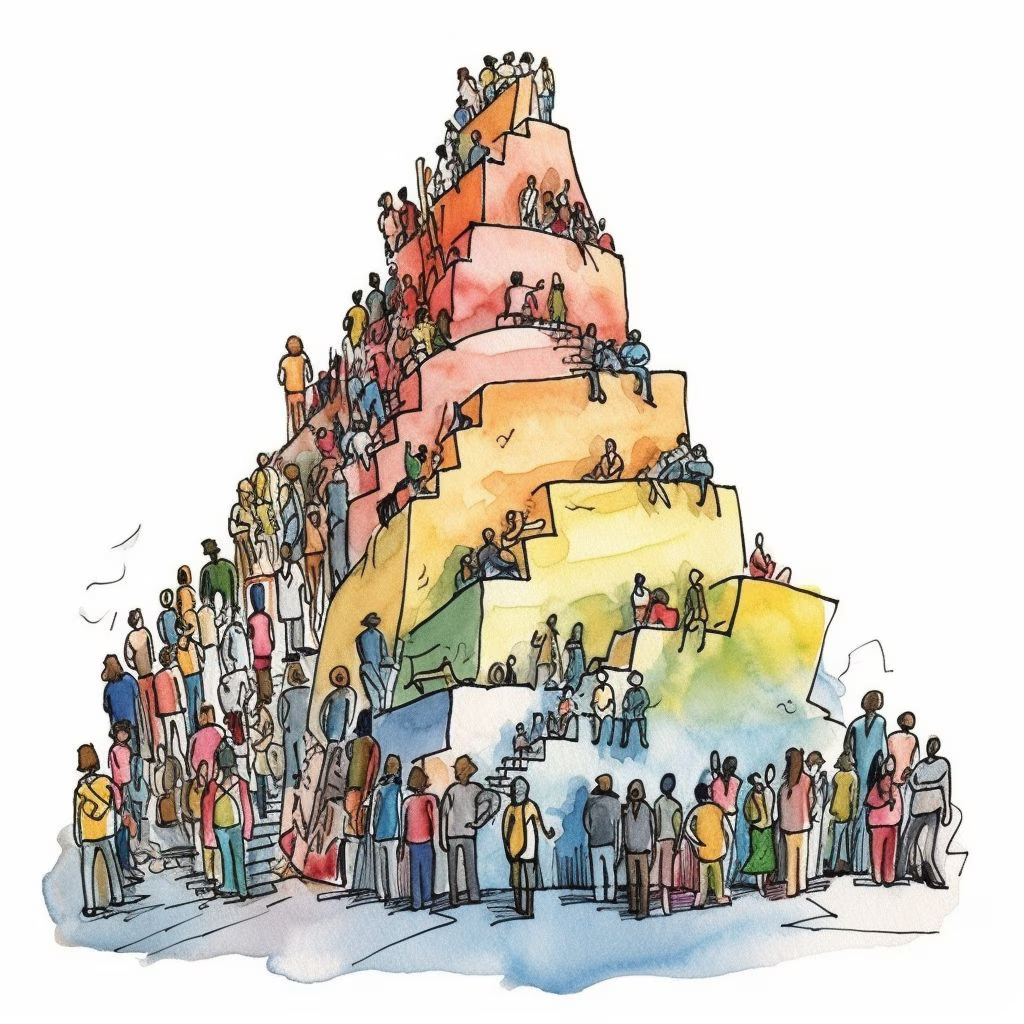AI Will Produce the Biggest K-Shaped Recovery We've Ever Seen

Will AI remove jobs or add them? Will it help people or harm them? Will it create prosperity or create despair?
The answer is yes. It’s not one or the other. They’ll all happen simultaneously.
The better questions are, "For who?", and "When?", and "In what order?" We don’t have those exact answers, of course, but I think certain trends are pretty solid.
The Innovation Flywheel

I believe Al is about to massively boost the economy, GDP, the stock market, and most every similar metric of productivity and output.
That probably sounds a lot like hyperbole or mania, similar to what was said about crypto. Here's why it isn't.
Yuval Harari went on Lex's podcast recently. The whole show was great, but one thing in particular struck me. He was talking about how Al is the first tech that can come up with ideas. This matches closely with something Joseph Thacker and I have been talking about a lot, which is the ability to test ideas.
I've been thinking of the whole cycle as something like this, which I'm calling the Innovation Flywheel.
🧠 Understand What an Entity Wants: This is the context I talk about in the SPQA architecture, and it applies to companies, countries, organizations, departments, and people.
🧱Understand the Entity's Challenges: Now that the Al knows what you care about, and what you're trying to do, it can then understand the challenges to those goals. Is it time? Resources? Competition? Etc.
💡 Create Ideas: Given the goals and the challenges, Al systems will then create a ton of ideas to help you solve those problems. It can generate new strategies and tactics for solving anything from world hunger, to political wrangling, to new product designs, to whatever. It's like brainstorming with people, but much faster and with more access to the world's collective knowledge.
🔢Rate the Ideas: Then the system, with you and your team of humans helping the rating training (like RLHF), can rate the quality of the ideas to come up with candidates for action.
🧪Test the Ideas: Then the system will be able to expose the ideas to various types of tests, such as A/B testing for objective metrics, surveys conducted by humans, real-world results in a marketplace, etc.
🧳Execute on the Winners: Then the business (also using Al) can then take those ideas and execute on them in various ways.
Added to that, we have the concept of Genetic Algorithms. This is where you can take ideas from Steps 3 and 4, and mate/mix them with each other to create even more ideas in Step 3. Then Steps 4 and 5 pick the winners. Rinse and repeat.
What this ends up being is a massive flywheel of creation. Of course #6 (Execution) is still the most important step, but Al will be helping with that as well. But what this flywheel can do is help keep people and companies from wasting time on ideas that are unlikely to work. And keep them flowing with good ideas that could have been impossible for them to see before.
Innovation Flywheel Use Cases
Developing strategies for beating a business competitor
Creating new marketing strategies
Creating new drugs
Finding a cure for cancer
Planning a fun date or vacation
Writing screenplays
Creating plots for new novels
Designing fun ways to keep the elderly engaged to stave off dementia
Creating new characters for a game or story
Etc, etc., etc.
All you will have to do is describe very clearly who you are, as a company or person, and what you're trying to do. And it will do the rest.
❝Imagine having a team of super-geniuses in your own personal think tank, constantly working on your challenges.
This is not theoretical or in the distant future. There are dozens of companies working on this tech right now, and there are already many products doing early versions.
Soon it'll be part of every Digital Assistant, which everyone will have.
ASSISTANT: I see you’re brainstorming on how to beat a competitor to market? Can I ask you 10 questions and create and test a bunch of ideas for you to rate?
This will enable unbelievable amounts of innovation, and I honestly believe it’s going to boost our economies like nothing we’ve ever seen.
Startups will thrive. Corporations will thrive. GDPs will rise. And everyone participating will become richer and more successful than ever.
But that’s the problem. Not everyone will be participating.
Now the bad news

The problem is that only the smartest, luckiest, best educated, best located, and otherwise/aka luckiest people will benefit from all this.
That means the rest of the population will get left behind. There is some hope that one of the areas of innovation will be bringing these augmentation and decision-support tools to the masses, allowing them to more closely match the behavior of the successful, but that will take a long time (if it ever happens).
The default state without that is the top N percent (we’re calling that 10% here but it all depends where you draw the line) will then be even smarter after their augmentation and supplementation from AI. Their assistants, their agents, their idea creation, their execution—everything.
❝We’ve seen K-shaped recovery effects before, but this one will be many times more powerful.
Basically it’s a K-shaped recovery, except on AI-powered nanobot steroids.
Not only will the successful keep getting more successful—which is normal—but the speed at which they get smarter and more efficient will be magnified manyfold by their use of AI tools like the Innovation Flywheel.
Imagine a business owner who has two small businesses and makes $480K/year. He’s successful, but multiple barriers have stopped him from making more. Not enough ideas. It’s hard to execute on things. Etc. Now imagine him with those barriers removed. How many businesses does he have then? And how much more does he make?
We can give struggling people the same tools but if they don’t have the freedom, the financial stability, AND the talent to use them properly, it won’t matter. It’s the people who already have all three of those things who will benefit from AI. Especially the first two, because you can’t do much with talent when you are stuck in low-paying jobs that keep you from being able to think.
So, unless we actively work to counter it, I expect to see both a massive boom and the GINI Coefficient (i.e., income/wealth inequality) get dramatically worse.
Summary
AI is a completely new type of technology because it’s able, for the first time, to not only do work, but come up with ideas, test them, AND help implement them.
This will enable AI to help us innovate on a wide range of problems at a pace never before possible, which we’re capturing as the Innovation Flywheel. That is: Understanding Desires, Understanding Challenges, Creating Ideas, Rating Ideas, Testing Ideas, Executing on Ideas.
The problem is only a small percentage of people are in the economic, geographic, educational, and life-stage position to be able to capitalize on this technology. It’s best-suited to people with 1) free time, 2) capital, and 3) support from peers to start businesses. Very few people have that.
The result of this will be an absolute explosion of economic activity, investments, new company creation, corporate profits, GDPs, value creation, new products, etc., but that innovation will be created by, and most benefit, the top N percent of the population.
We’re about to see unparalleled creative force and economic benefit from AI, but it’s hard to call it prosperity if it leaves 75-90% of the world behind.
NOTES
Thanks to Joseph Thacker > for the initial nudge to capture this entire lifecycle after we talked about his idea for idea creation and testing.
Also check out a related article called AI and the World’s Most Important Economic Metric (The Creativity Friction Coefficient >.